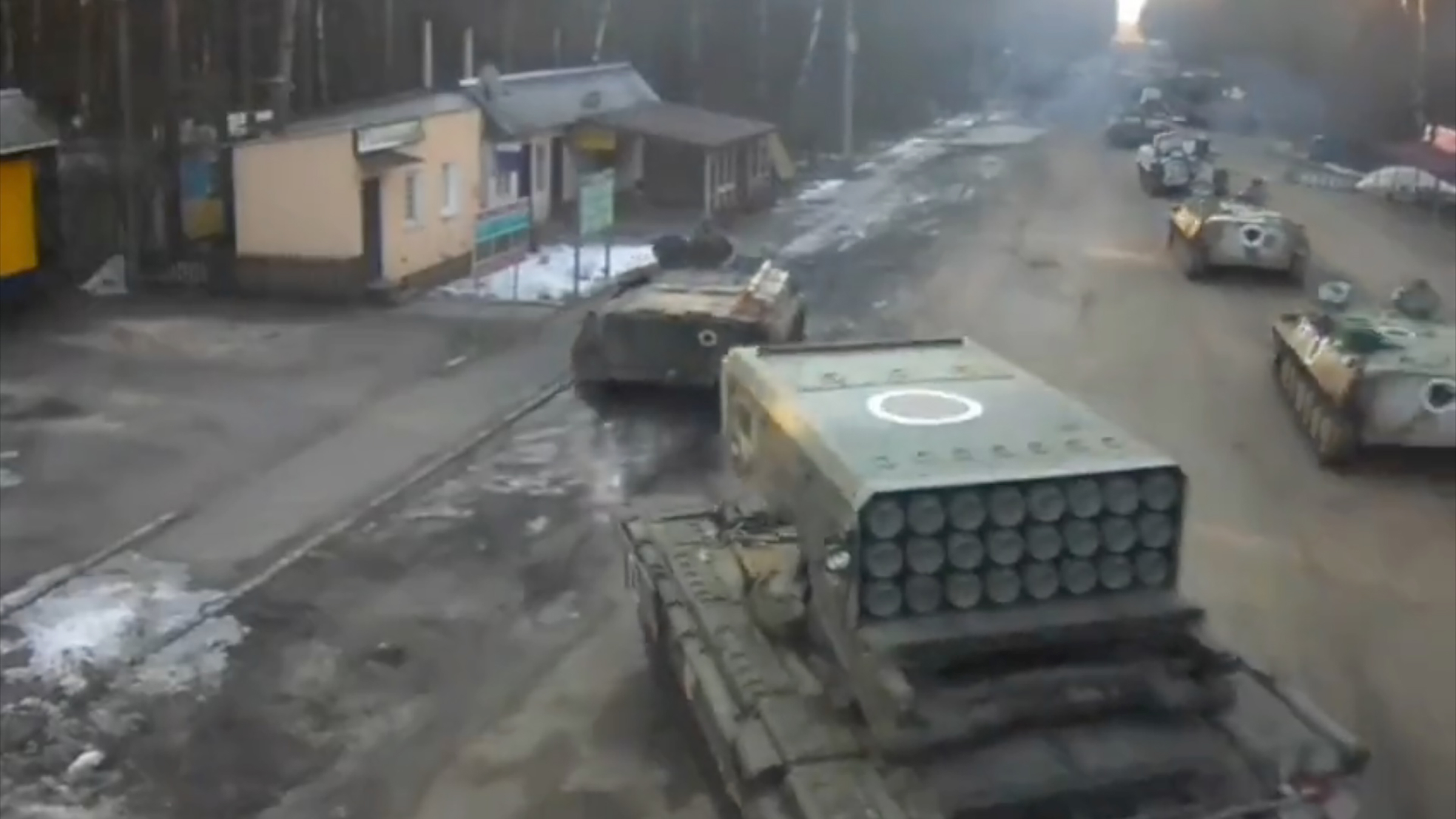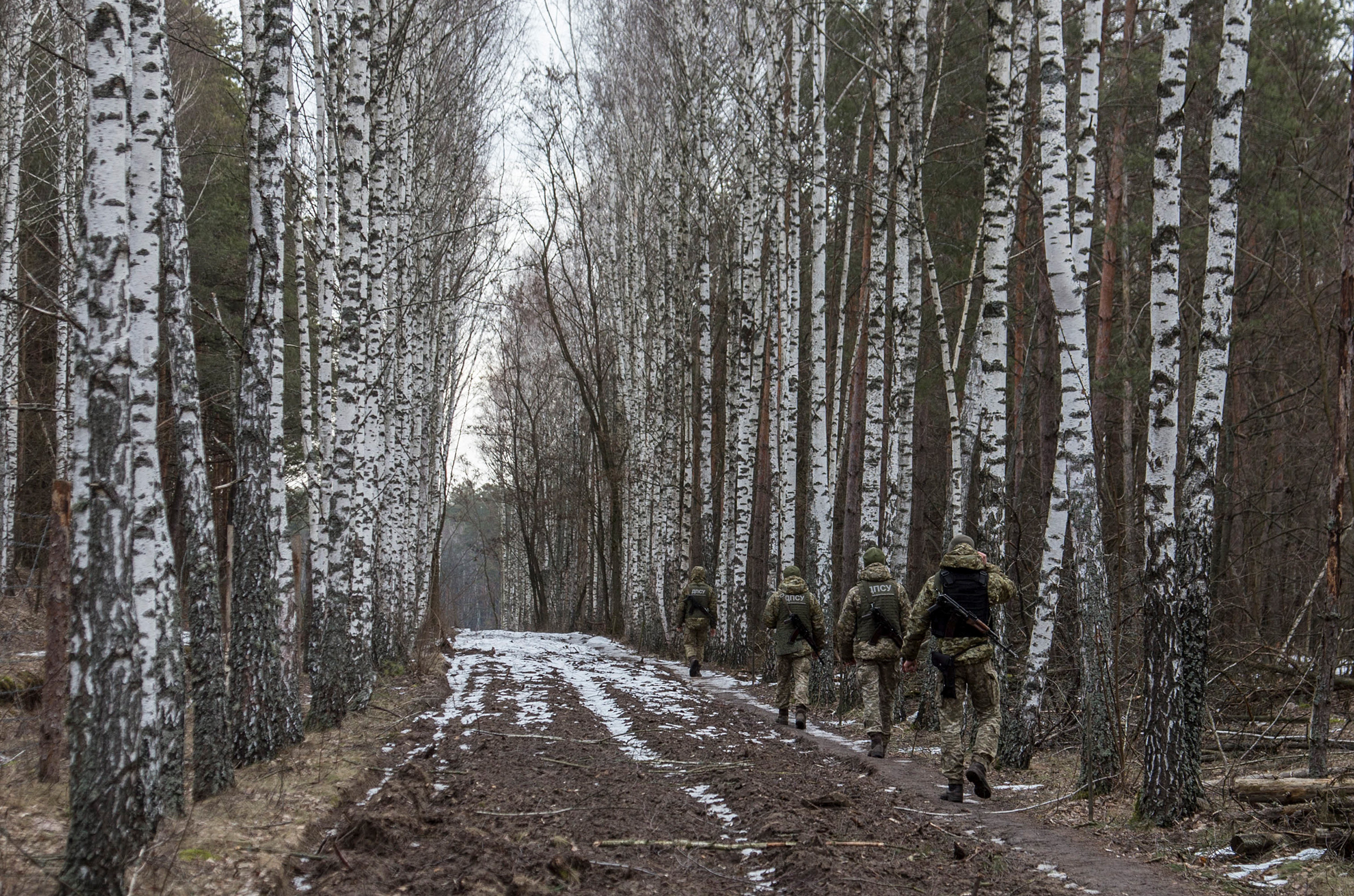The U.S. Treasury Department imposed sanctions on the Belarusian regime’ defense sector and financial institutions Thursday following Russia’s invasion of Ukraine, citing Minsk’s “support for, and facilitation of” Moscow’s attack.
Among the 24 individuals and entities facing these sanctions are Belarusian defense minister Viktor Khrenin, two large state-owned banks, several security companies that the U.S. says have close links with Russia, and a businessman linked to authoritarian President Alexander Lukashenko.
“Having already sacrificed its legitimacy to suppress the democratic aspirations of the Belarusian people, the Lukashenko regime is now jeopardizing Belarus’ sovereignty by supporting Russia’s further invasion of Ukraine,” said U.S. treasury minister Janet Yellen.
Read More: Here’s What We Know So Far About Russia’s Assault on Ukraine
The U.S. isn’t the only country sanctioning these institutions and individuals. British Prime Minister Boris Johnson announced similar punitive measures for Belarus’ reported role in the assault.
As tensions between Moscow and Kyiv escalated last week, some 30,000 Russian troops extended their stay in Belarus. For months, the U.S. has been warning that Russia is creating pretexts to swoop on Kyiv, and flagged that the recent war games and this extension in Belarus was a prelude to the attack on Ukraine, which was ultimately launched Thursday.
Lukashenko has denied the involvement of Belarusian troops in Moscow’s attack, although he said he was willing to support Russian forces if necessary, state media reported. But with reports of Russian troops entering Ukraine from its northern border, the Belarusian regime’s role in the emerging conflict in Europe has come under increased scrutiny.
“I think the most alarming thing we now understand is that we’re not quite sure whether Belarus could be considered as a sovereign state in terms of control on its own territory, especially in terms of military control,” says Olga Dryndova, editor of Belarus-Analysen at the University of Bremen’s Research Center for East European Studies in Germany.

The relationship between Russia and Belarus
Both Russia and Belarus belonged to the former Soviet Union. These days, Russia is also Belarus’ key trade partner. Bilateral trading between the countries was $29.5 billion in 2020, according to government data. The two nations also hold regular military drills together, with the most recent one on Feb.10 near Belarus’ southern border with Ukraine.
Read More: In the Standoff Between Belarus and Europe, Migrants Are Being Used as Human Weapons
The Kremlin has long urged for the better implementation of a 1999 treaty between Russia and Belarus. In the treaty, the two countries vowed to form a union similar to that of the European Union, promising broad cooperation but also maintaining their independence. Lukashenko reportedly hoped that in signing the treaty, he would be chosen to replace outgoing Russian President Boris Yeltsin—who was sick at the time. However, the presidency went to Vladimir Putin, and the treaty was never fully implemented.
Lukashenko went on to rebuff several proposals from Moscow for deeper integration of the two countries. The hotly contested 2020 Belarusian elections changed that. Lukashenko claimed to have won a sixth term by a landslide, despite claims of electoral fraud and widespread vote-rigging. Minsk has since warmed up to Moscow—especially after Putin recognized Lukashenko’s victory in the polls and offered to provide security aid if massive electoral protests in the country worsened.
Dryndova believes that Lukashenko was able to stay in power in Belarus because of Russia’s show of support. “I don’t see how possible it was for him to stay in power without the support of Putin,” she says. But it came at a price. “That’s also the tragedy of the protests of 2020—that they made [Lukashenko] so weak that he is now not able to ask Putin to move his tanks out of the territory.”
Read More: Russia’s Invasion of Ukraine Is a Major Test for Joe Biden’s Foreign Policy Vision
Ihar Tyshkevich, an expert on Belarus from the Ukrainian Institute of the Future in Kyiv, says Lukashenko has no power to oppose Russia from stationing its troops in Belarus, and has nothing to gain from letting Moscow use Minsk territory.
“Lukashenko cannot benefit from Russian aggression in Ukraine,” Tyshkevich says. “But he has no choice.”
What does Belarus stand to lose?
By allowing Russian troops to enter Ukraine from the northern border, Lukashenko has effectively surrendered the sovereignty of Belarus, according to Jörg Forbrig, Director for Central and Eastern Europe of the German Marshall Fund.
“By now, his country is basically part of the Russian military space,” Forbrig says. “It is a staging ground for the Russian army.”
Belarusian authorities have called Ukraine an “important trading partner,” but that relationship will likely also be severely impacted by the latest developments, says Forbrig. A large part of that trade is oil: In 2019, around half of Belarus’ $4.14 billion in exports to Ukraine is refined petroleum products. Another major export from Belarus to Ukraine is electricity. Belarusian state media previously forecast electricity exports to Ukraine could rise as high as 1.2 billion kilowatt-hours in 2021. That relationship is set to end now, after Ukraine said it would suspend imports of its electricity from Belarus in response to the crisis.

Strengthened ties between Minsk and Moscow also signify Russia’s growing counter-response to the NATO alliance, which Ukraine has expressed interest in joining. The Kremlin’s ability to station troops in Belarus puts pressure on NATO powers to respond to the precarious defense and security situation in the region, Forbrig says. Three of Belarus’ neighboring states are members of NATO—Latvia, Lithuania and Poland—and other member-states in the region are already on high-alert due to the Ukraine crisis. Lukashenko had offered to host Russian nuclear weapons in the country if NATO were to move American nuclear bombs from Germany to Eastern Europe. His regime can soon host the weapons in Belarus after it renounced “non-nuclear” status in a constitutional referendum that claimed to have the approval of majority of voters—made possible by a brutal crackdown on opponents following a 2020 election that was widely criticized as neither free nor fair.
Read More: How NATO Is Responding to Russia’s Invasion of Ukraine
And though Lukashenko has ruled Belarus for 28 years, that may not last. As an autocracy, Belarus has little to no reliable data on Lukashenko’s popularity, but one 2020 poll before the Aug. 9 elections and the protests that followed showed Lukashenko’s approval rating at 24%. Thousands of protesters claimed that the election results were rigged.
“The bigger question at some stage is whether or not Lukashenko at some stage becomes dispensable to Moscow,” says Forbrig, noting that the Belarusian leader’s power is effectively sponsored by Putin. “They may find at some stage that installing a different ruler in Belarus will be beneficial for them.”
More Must-Reads from TIME
- Cybersecurity Experts Are Sounding the Alarm on DOGE
- Meet the 2025 Women of the Year
- The Harsh Truth About Disability Inclusion
- Why Do More Young Adults Have Cancer?
- Colman Domingo Leads With Radical Love
- How to Get Better at Doing Things Alone
- Michelle Zauner Stares Down the Darkness
Contact us at letters@time.com